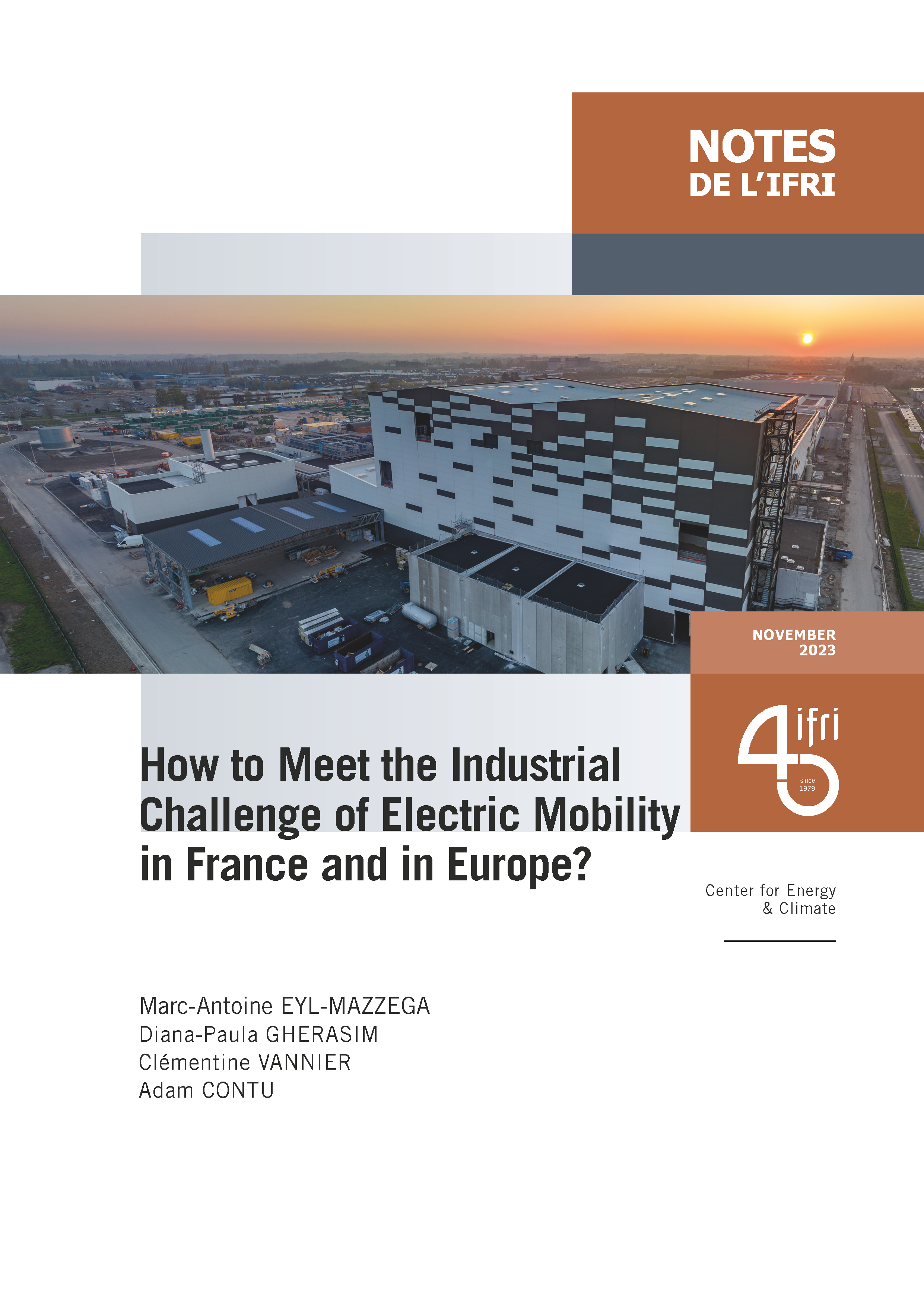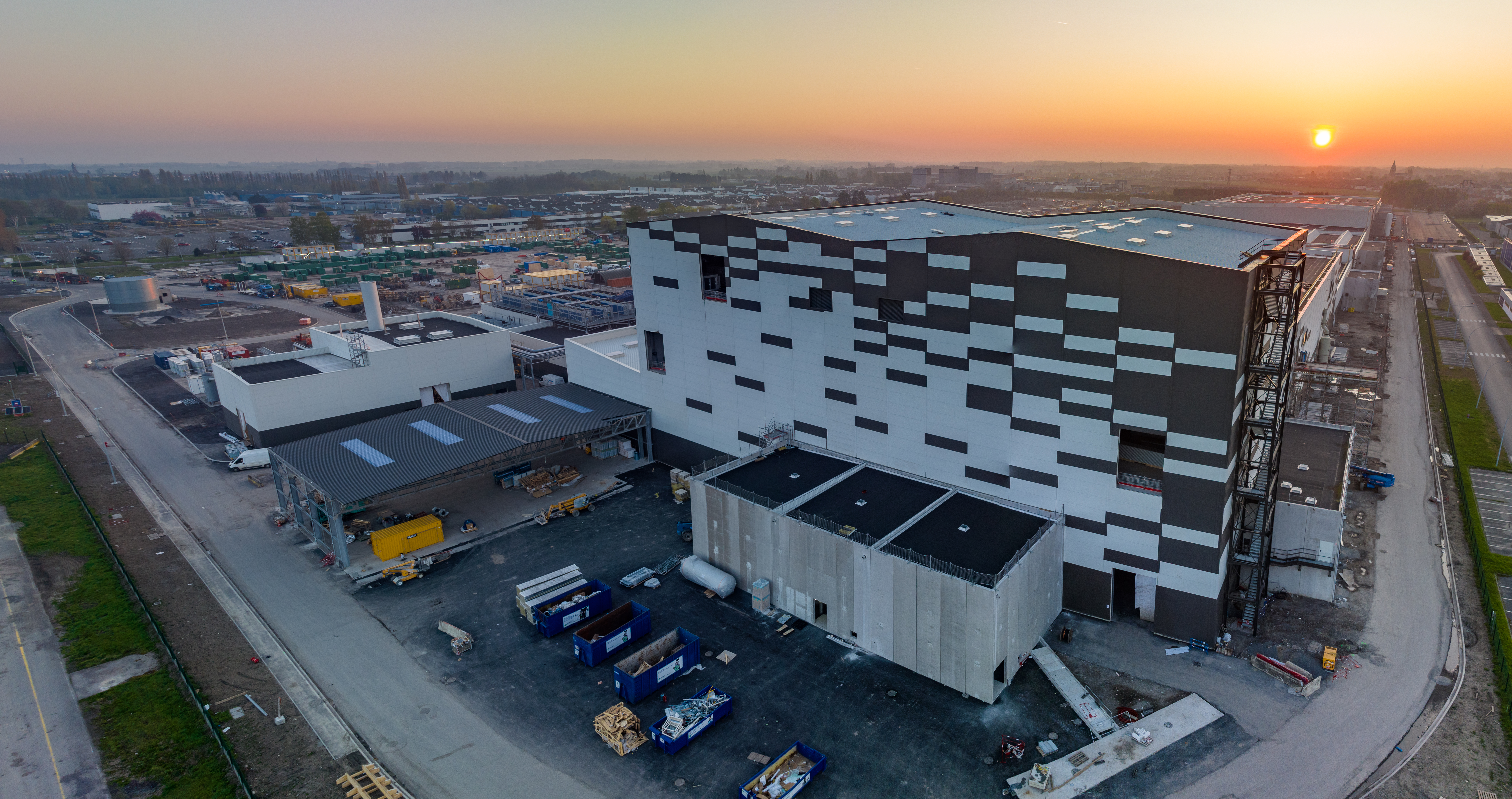How to Meet the Industrial Challenge of Electric Mobility in France and in Europe

The deployment at scale of electric mobility in France and in Europe withholds significant industrial, societal, geopolitical, and financial challenges, against the backdrop of strategic dependencies along the value chain of the electric vehicle (EV).

A certain lack of vision of the value chain as a whole, of the needs and objectives at each stage, and of how to ensure consistency and follow-up over time adds up to the concerns of industry players, who not only need to catch up from a technology point of view, but also to innovate, to secure the value chains, the workforce, the supply in low-carbon affordable energy and to scale up production and recycling capacities. Gigafactories are a major industrial step forward but should not obscure the complex and much broader nature of the battery value chain, and more generally of EVs’ value chain. This note summarizes the key findings of Ifri’s extensive study with the same name and its ten key recommendations for overcoming the industrial challenges of electric mobility deployment in France and Europe:
- Developing a holistic approach to the supply of critical raw materials, focusing on five key areas: domestic extraction, refining, mining diplomacy and environmental, social and governance (ESG) standards and recycling.
- Ensuring the stable and competitive supply of low-carbon electricity.
- Building integrated partnerships with European players at all stages of the EV value chain, with a view in particular to rapidly securing a certain number of cathode and anode active material (CAM and AAM) and precursor cathode active material (PCAM) production capacities, and supporting innovation in battery chemistry, which is the only way for Europeans to distinguish themselves from China.
- Planning in order to acquire an integrated mastery of the value chain, to develop the skills and train the workforce.
- Moderating the demand in critical raw materials as a key to resilience, as alternative means of transport, fewer car sales and smaller batteries, contribute to reduce the future increase in raw material needs.
- Re-imagining mobility to make it more sustainable, accessible, and fair.
- Setting up and calibrating a support system for the deployment of the different stages of the electric mobility value chain in France, whose cost to the national budget could be in the region of €8-9 billion a year, over the next few years.
- Protecting industries from unfair and less virtuous practices.
- Exploiting the growth of electric mobility to strengthen the integration of variable renewable energies into power systems.
- Ensuring that the European Union (EU) has the appropriate resources to meet the multiple industrial and technological challenges linked to EVs in the context of polycrises. Only some of these have been covered in this study, as EVs cannot be reduced to batteries alone, and involve many other key equipment and issues, hence the need to have an EV based approach, as opposed to one centered around battery-cells.
> The entire report is available in French through this link : Comment gagner le pari industriel de la mobilité électrique en France et en Europe ?
Download the full analysis
This page contains only a summary of our work. If you would like to have access to all the information from our research on the subject, you can download the full version in PDF format.
How to Meet the Industrial Challenge of Electric Mobility in France and in Europe
Related centers and programs
Discover our other research centers and programsFind out more
Discover all our analysesAI, Data Centers and Energy Demand: Reassessing and Exploring the Trends
The information and communication technologies sector today accounts for 9% of global electricity consumption, data centers for 1-1.3%, and artificial intelligence (AI) for less than 0.2%. The growing energy demands of cloud services first, and now AI workloads (10% of today’s data centers electricity demand), have exacerbated this trend. In the future, hyperscale data centers will gain shares amongst all kinds of data centers and AI will probably account for around 20% of data centers electricity demand by 2030.
Unlocking India’s Energy Transition: Addressing Grid Flexibility Challenges and Solutions
India is rapidly scaling up its renewable energy (RE) capacity, adding 15–20 GW annually, but the ambitious goal of 500 GW of non-fossil capacity by 2030 is at risk unless the pace accelerates.
Europe’s Black Mass Evasion: From Black Box to Strategic Recycling
EV batteries recycling is a building block for boosting the European Union (EU)’s strategic autonomy in the field of critical raw minerals (CRM) value chains. Yet, recent evolutions in the European EV value chain, marked by cancellations or postponements of projects, are raising the alarm on the prospects of the battery recycling industry in Europe.

The New Geopolitics of Energy
Following the dramatic floods in Valencia, and as COP29 opens in Baku, climate change is forcing us to closely reexamine the pace—and the stumbling blocks—of the energy transition.














